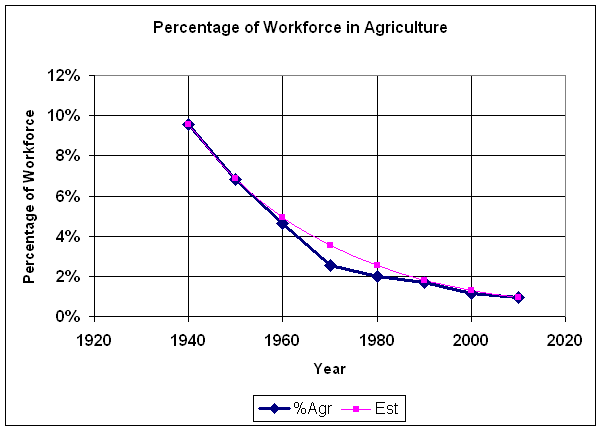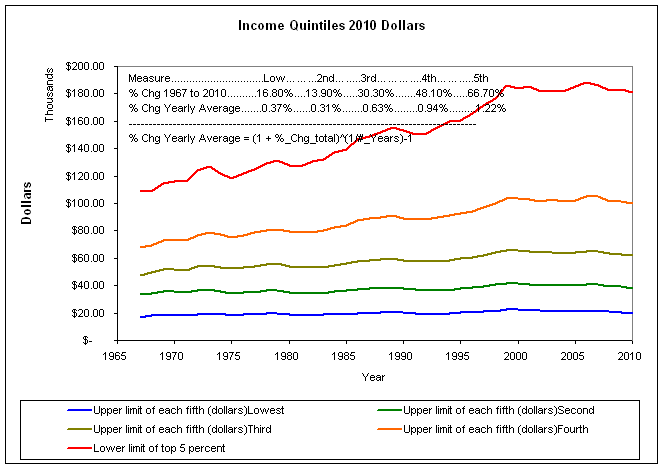I'm using the word the way most economists use it today, to describe any economic system in which all or most of the means of production are privately owned and operated on a for-profit basis.
Not when you're claiming that a requirement or defining factor of Capitalism is concentration of Capital in the hands of a few, you're not. That's my "quibble," that you're adding on ideas that are not and never have been part of any capitalist ideas.
I'm just observing that that's the way it normally works. A system with non-concentrated capital would still be capitalist by definition. The fact that no such decentralized capitalist economy has ever existed doesn't change that, but it does mean that in describing the social compact permitting capitalism this theoretical possibility isn't very important.
You will find that some authoritarian personalities like to argue about the meaning of a word. They "win" the argument because they know the correct definition. Of course, their definition tends to be according to how their authority of choise uses it. Economicst refer to "inflation" meaning "price inflation" while some Republicans have decided it means "monetary inflation."
Then, of course, other's get a bit annoyed when a term is used differently then the well established meaning. I do that because I go look it up on Merriam, Google, and Wiki.
Sometimes, though, for lack of another word, a term gets co-opted.
The best I can tell, the term "corporatism" is being used to refer to national and global ologopolies that have considerable political influence.
Capitalism is the right of private ownership.
Capitalism and corporatism are not mutually exclusive. In capitalism, monopolies and ologopolies may form due to economies of scale and barriers to entry. There are markets in the global economy that are dominated by ologopolies. These ologopolies are corporations and they do have considerable political influence.
Google:
"The control of a state or organization by large interest groups.."
Wikipedia:
"Corporatism, also known as corporativism, is a system of economic, political, or social organization that involves association of the people of society into corporate groups, such as agricultural, business, ethnic, labor, military, patronage, or scientific affiliations, on the basis of common interests
Corporatist types of community and social interaction are common to many ideologies, including: absolutism, capitalism, conservatism, fascism, liberalism, progressivism, reactionism, social democracy (social corporatism), and syndicalism.
For business influence in politics, see Corporatocracy."
Merriam-Webster:
the organization of a society into industrial and professional corporations serving as organs of political representation and exercising control over persons and activities within their jurisdiction.
-----
With respect to what you are talking about, since mechanization, there has been an oversupply of labor. In 1940, about 10% of the population could feed everyone. In 1910 it took 1%.
As a new product and technology develops, it creates an influx of capitalists that race to achieve market dominance. This absorbs the excess labor. Eventually, only a few survive and unemployment rises again until the next new product cycle. And, of course, product development overlaps.
At some point, and who knows when, there will be no more new products. That though doesn't mean that some balance will not be struck. Every time the market cycles down, some established manufacturing and consumption takes a hit. People buy fewer DVDs, pet rocks, or whatever.
At some point, things may stabilize with no more cycles caused by "everyone getting on the band wagon" when a new technology hits the market. At that point, it is quite possible that small capitalists, like the guy that mortgages his equity to create a small start up, will return many products to the market.
Product differentiation becomes big. During the boom times, product quality increases and what were otherwise dominant companies find themselves with more competition. Baskin Robbins offers 31 flavors, some other ice cream shop offers only a few gourmet flavors.
I'm watching for the regulation of oligopolies. We see this starting to happen in the medical insurance market which has been safe from federal anti-monopoly laws.
How this all sorts out will depend on how long the unemployment rate stays at near 10%. As you note, as long as the general population doesn't complain to much, capitalism works just fine.
Here is a nice graph of the spread of income. It is the upper limit for quitiles. It is in real dollars, inflation adjusted, so it shows that inflation adjusted real value. The red line is the lower limit of the upper 5%. So the lower 20% of the population earned the range from zero to the blue line. The second 20% earned from the blue line to the orang line. And up it goes.
The percentage change in real dollars is in the table. The upper 5% have seen a 1.22% increase per year. The lower quintile actually gained more than the middle class.
http://i776.photobucket.com/albums/yy42/thefitz3/Income1.gif

